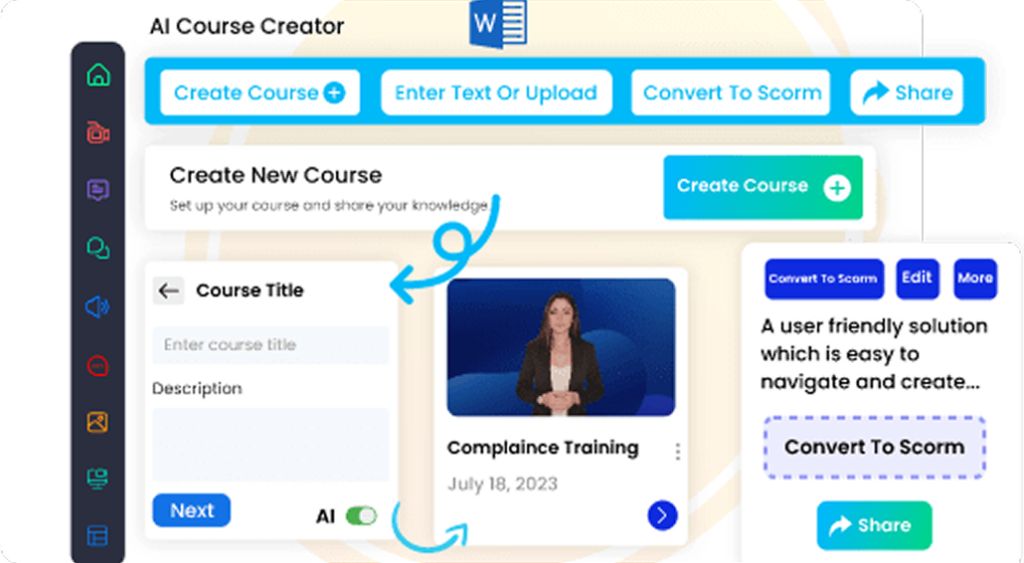Conflict of interest training for employees is an essential part of any organization’s ethics training. As businesses continue to grow and operate in a global environment, ensuring transparency and avoiding potential conflicts in decision-making processes is crucial. This article will explain what a conflict of interest is, how it occurs, and the importance of conflict of interest training to prevent it. We’ll also explore how to manage and mitigate conflicts of interest effectively.
What is a Conflict of Interest?
A conflict of interest occurs when an individual’s personal interests interfere with their professional duties or responsibilities. In the workplace, this means that an employee’s decision-making, judgment, or actions might be biased because of personal interests, which could harm the organization’s integrity or reputation.
In simple terms, a conflict of interest arises when personal relationships or financial gains conflict with professional duties. This can lead to unethical behavior and damage to the organization’s credibility.
When Does a Conflict of Interest Occur?
Conflicts of interest can arise in many different scenarios. Below are some of the most common examples:
- Financial Interests: An employee might have financial stakes in a competitor company, leading them to make decisions that benefit their personal interests rather than the organization’s best interests.
- Personal Relationships: Employees might favor a relative or friend during hiring or promotion decisions, which can create bias and unfair advantages.
- Outside Business Activities: Employees who run side businesses or hold positions in other organizations may face conflicts when making decisions that could benefit their personal ventures over their employer’s interests.
- Gifts or Benefits: Receiving gifts, favors, or other incentives from clients or vendors may lead to biased decisions, creating a conflict of interest.
Why Is Conflict of Interest Training for Employees Important?
Implementing effective conflict of interest training for employees is vital for several reasons:
- Maintaining Trust and Transparency: Training helps employees understand what constitutes a conflict of interest and how it can impact the organization’s credibility. It fosters a culture of honesty and accountability.
- Preventing Legal Issues: Conflicts of interest can lead to legal disputes or regulatory fines if left unchecked. Proper training ensures that employees comply with industry regulations and ethical standards.
- Protecting Company Reputation: A single conflict of interest scandal can severely damage a company’s reputation. Training equips employees with the knowledge to avoid making decisions that could harm the organization.
Conflict of interest training is not only about avoiding mistakes but also about cultivating an ethical workplace where employees can make decisions confidently and responsibly.
Learning Built Around Your Goals.
Discover how our courses can align with your training goals and drive real results.
How to Manage and Mitigate Conflicts of Interest in the Workplace
Managing conflicts of interest involves setting clear guidelines, policies, and practices. Here’s how businesses can effectively manage and mitigate these conflicts:
1. Develop a Comprehensive Conflict of Interest Policy
Having a clear and concise conflict of interest policy is the first step in preventing conflicts. This policy should outline the types of conflicts that employees should avoid, how to report potential conflicts, and the consequences of violating the policy.
2. Regular Conflict of Interest Training for Employees
Conflict of interest training should be an ongoing process. New employees should undergo training during onboarding, and existing employees should have regular refresher courses. This ensures that everyone remains aware of potential conflicts and knows how to handle them appropriately.
3. Encourage Transparency and Reporting
Employees should feel comfortable reporting any potential conflicts without fear of retaliation. Encouraging open communication and providing anonymous reporting channels can help prevent conflicts from escalating.
4. Monitor and Enforce Policies
It’s important to regularly review employee activities and business dealings to identify potential conflicts of interest. Implementing monitoring systems and conducting audits can help spot conflicts before they become serious issues.
How CogniSpark AI Supports Conflict of Interest Training and Awareness
Managing conflicts of interest requires more than just policy documentation—it demands awareness, judgment, and ethical decision-making across the workforce. CogniSpark AI enhances your organization’s compliance efforts by delivering dynamic Conflict of Interest training that engages employees with real-world scenarios and AI-driven decision simulations.
Its integrated AI Tutor provides real-time feedback as learners navigate common ethical dilemmas, helping them recognize subtle red flags and respond appropriately. With CogniSpark’s in-built authoring tool, compliance teams can easily create and update training modules that align with internal codes of conduct, industry standards, and regulatory requirements.
Fully compatible with any Learning Management System (LMS), CogniSpark ensures seamless deployment, centralized tracking, and measurable learning outcomes. Whether onboarding new hires or reinforcing ethical practices among leadership, CogniSpark AI helps embed a culture of transparency, accountability, and trust—critical for managing and mitigating conflicts of interest.
Conclusion: Fostering a Conflict-Free Workplace
In conclusion, conflict of interest training for employees is crucial for maintaining a professional and ethical workplace. By educating employees on the importance of transparency, developing clear policies, and fostering an open environment for reporting potential conflicts, businesses can avoid the risks associated with conflicts of interest. Remember, preventing conflicts before they arise is far more effective than dealing with the consequences afterward.
Incorporating these best practices not only protects your organization from legal and financial risks but also builds a culture of integrity that promotes trust and accountability at every level.
Access 100+ fully editable, SCORM-compatible courses featuring an integrated AI Tutor and an in-built authoring tool. Seamlessly compatible with any LMS, these courses are designed to elevate your training programs.
Explore Our eLearning Course Catalog






















